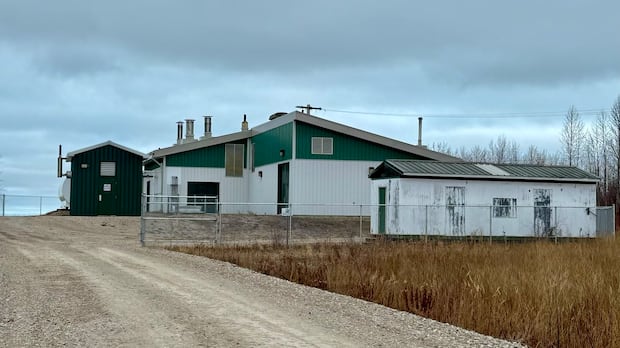Top Stories
Urgent: Hay River Residents Demand Action on Water Safety Issues

UPDATE: Residents of Hay River, N.W.T., are urgently demanding more frequent water testing and greater transparency following a troubling drinking water advisory issued earlier this month. A warning about high levels of trihalomethanes (THMs)—chemical by-products formed when chlorine reacts with organic matter—has left the community on edge.
During a critical town meeting on November 16, 2023, officials confirmed that THM levels in the town’s water had surpassed the federal safety limit. N.W.T. chief environmental health officer Chirag Rohit emphasized that while the levels were only slightly above the guideline of 100 micrograms per litre, residents are still understandably concerned.
As many residents, including Debbie Watsyk, filter their water and take measures to reduce THMs, they voiced frustrations over the lack of timely communication regarding test results. Watsyk questioned, “My house doesn’t come with a filter system. So if I buy one, do I get to bill the town?”
Residents are not only seeking answers but also help with the costs associated with ensuring safe drinking water. Genevieve Clark, another resident, highlighted the urgency of the situation, stating that the average THM level in recent tests was 109 micrograms per litre, peaking at 128 in August. “How many years have I been consuming eight glasses of water a day [with THMs] over 100?” she lamented.
The advisory noted that extended exposure to high THM levels could increase cancer risks over prolonged periods. Many residents are pushing for monthly testing instead of quarterly to monitor the situation more closely. Officials announced that they would now conduct monthly tests to track improvements following operational changes at the water treatment plant.
Concerns extend beyond immediate safety to the long-term viability of the town’s aging water infrastructure. Residents questioned whether the 50-year-old plant could effectively handle current conditions exacerbated by climate change. Glenn Smith, the town’s senior administrative officer, acknowledged that lower water levels in Great Slave Lake have led to increased organic matter, complicating the treatment process.
In response to the mounting pressure, Mayor Kandis Jameson revealed that a new water treatment plant is included in the town’s ten-year capital plan, with a projected budget of up to $30 million. The project is deemed shovel-ready, pending funding. Jameson assured residents that once secured, it would take approximately three years to complete.
As the community grapples with these pressing water safety issues, residents are left wondering how long they will have to wait for relief. This developing situation underscores the urgent need for action to ensure safe drinking water for all residents of Hay River.
Officials promise to release regular updates on testing results and progress in addressing these concerns. However, the community’s patience is wearing thin as they seek immediate solutions to protect their health and well-being.
-

 Politics6 days ago
Politics6 days agoSecwepemc First Nation Seeks Aboriginal Title Over Kamloops Area
-

 World4 months ago
World4 months agoScientists Unearth Ancient Antarctic Ice to Unlock Climate Secrets
-

 Entertainment4 months ago
Entertainment4 months agoTrump and McCormick to Announce $70 Billion Energy Investments
-

 Lifestyle4 months ago
Lifestyle4 months agoTransLink Launches Food Truck Program to Boost Revenue in Vancouver
-

 Science4 months ago
Science4 months agoFour Astronauts Return to Earth After International Space Station Mission
-

 Technology3 months ago
Technology3 months agoApple Notes Enhances Functionality with Markdown Support in macOS 26
-

 Top Stories1 month ago
Top Stories1 month agoUrgent Update: Fatal Crash on Highway 99 Claims Life of Pitt Meadows Man
-

 Sports4 months ago
Sports4 months agoSearch Underway for Missing Hunter Amid Hokkaido Bear Emergency
-

 Politics3 months ago
Politics3 months agoUkrainian Tennis Star Elina Svitolina Faces Death Threats Online
-

 Politics4 months ago
Politics4 months agoCarney Engages First Nations Leaders at Development Law Summit
-

 Technology4 months ago
Technology4 months agoFrosthaven Launches Early Access on July 31, 2025
-

 Top Stories3 weeks ago
Top Stories3 weeks agoFamily Remembers Beverley Rowbotham 25 Years After Murder





















